Some self-criticism: What is really stopping effective journalism?
5 min readIt is not just a common habit in journalism but part of human nature in general that we usually highlight issues and find someone else to blame. This habit gives us a sense of relief and the illusion that we are not responsible for the problem, which takes the weight off our shoulders and makes us think that someone else has to fix it.
Journalism in Pakistan faces unlimited challenges on many fronts—from journalists to media owners, from state agencies to political parties.
Some months ago, I got a chance to witness a debate titled, “Media has failed to fulfil its responsibility in Pakistan.” The speakers in opposition, including the famous journalist Mazhar Abbas, and the majority of the participants, were of the view that the media should not be criticised for something bad attributed to it but “rather the state should be.”
They said, for example, that if the media is censoring content, it is the other stakeholders who should be criticised for it. But is it really the case? Is the media in Pakistan free from all criticism? Is there nothing in journalists’ hands? Does the media really fulfil its responsibility in Pakistan?
If you have watched the movie The Physician then you must remember a scene when Rob Cole (Tom Payne) was not actively present in class, and the protagonist Ibn Sina (Ben Kingsley) apologised to him, saying, “I am sorry for not engaging you with the lecture.” This should be one’s approach if one truly wants development.
There are numerous genres of journalism, and the irony is that we are failing to do any of them by merely quoting politicians’ statements as news. Investigative journalism and explanatory journalism are two main types of journalism. Let’s examine our contributions to them.
Investigative journalism:
There is only one Pakistani newspaper, The News, which has an investigation cell. Only one news channel has a fact-checking cell. All other Pakistani news organisations are just doing ‘he said, she said’ journalism. Almost no news channel is doing investigative journalism at the organisational level, although some individuals are. But as Karl Marx suggested, individuals have limited free will.
Newcomers in the industry usually have no concept of investigative journalism because of the burden of history. They believe that a journalist’s duty is to interview people and report their statements. This is the biggest harm done to media students and newcomers by our former journalists and contemporaries.
As a journalist, I rarely find seniors who can guide me on how to do an investigative story. When someone wants to become an investigative journalist and tries to bring a unique or important story, they usually end up with a case registered against them due to loopholes in the story. There is no culture or mentorship as far as investigative journalism is concerned.
Explanatory journalism
Now, let’s come to explanatory journalism. When I was studying journalism at a university, there were times when I could not understand the news. I became frustrated and thought that I was so incompetent that I couldn’t understand it. But later on, I came to know that the fault lay with the media.
Some months ago, when the Supreme Court was hearing a petition against the Practice and Procedure Act, a fellow journalist asked me what the Practice and Procedure Act was. I replied, “You are supposed to watch TV screens all day, and if you don’t know about the act completely, then it’s not just your fault—it’s the media’s fault for not explaining it properly.”
I was proven right the very next day when the Supreme Court ruled in favour of the Act. An Urdu newspaper published detailed news about the top court verdict on the law but did not even bother to include an explainer about the Act.
This bad practice of not explaining issues starts at the reporter level and ends at the editor level. It’s a normal thing in Pakistani journalism to assume things instead of having a proper concept. Sometimes even reporters and newswriters write news they themselves do not fully understand. As a journalist, I read the news every day and am more aware of the issues than others, yet I usually don’t understand the news because of poor formatting.
Pakistan is among the countries most affected by climate change, yet you rarely find a news report in the media about this giant issue or a report explaining climate change in Pakistan. When floods massively hit the country (every year), you hear words like “climate change” from analysts and anchors. But for the rest of the year, they limit themselves to political analysis. According to some reports, roughly around 2.5 crore children are out of school in Pakistan. Yet, you rarely find even a single talk show discussing this issue for one episode. There is no concept of climate/environmental journalism, data journalism, science/technology journalism, or gender journalism in Pakistan.
Moreover, a considerable number of our journalists act like PR officers, always giving positive news and praising some politicians and other important figures. They hold back news exposing politicians and other figures. These journalists argue off the record that they have to act like this to get news. Is news that doesn’t expose them really worth it? Is this the right path to get news journalistically?
We journalists should ask ourselves: Has the state or political parties ever stopped us from discussing these issues? Isn’t the Pakistani media itself solely responsible for this?
For the latest news, follow us on Twitter @Aaj_Urdu. We are also on Facebook, Instagram and YouTube.
















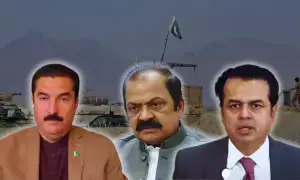


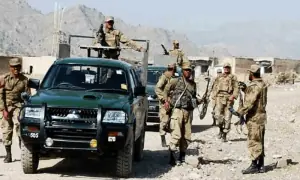
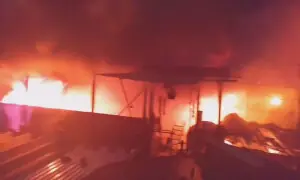


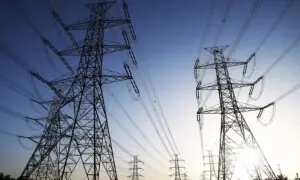
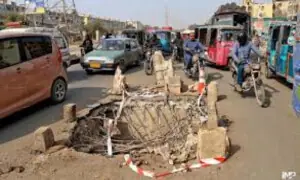

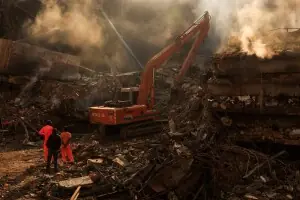
Comments are closed on this story.